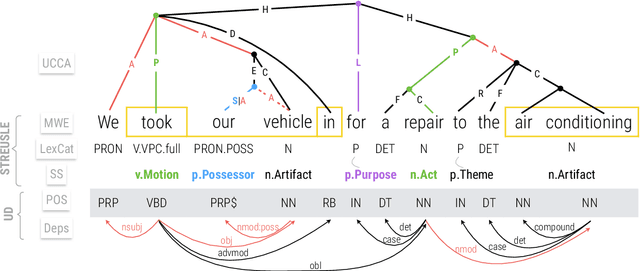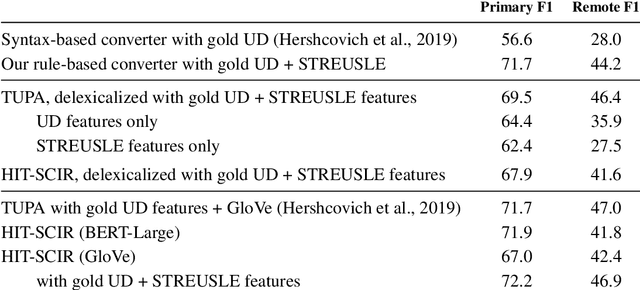Dotan Dvir
UCCA's Foundational Layer: Annotation Guidelines v2.1
Dec 31, 2020Abstract:This is the annotation manual for Universal Conceptual Cognitive Annotation (UCCA; Abend and Rappoport, 2013), specifically the Foundational Layer. UCCA is a graph-based semantic annotation scheme based on typological linguistic principles. It has been applied to several languages; for ease of exposition these guidelines give examples mainly in English. New annotators may wish to start with the tutorial on the UCCA framework (Abend et al., 2020). Further resources are available at the project homepage: https://universalconceptualcognitiveannotation.github.io
Comparison by Conversion: Reverse-Engineering UCCA from Syntax and Lexical Semantics
Nov 02, 2020



Abstract:Building robust natural language understanding systems will require a clear characterization of whether and how various linguistic meaning representations complement each other. To perform a systematic comparative analysis, we evaluate the mapping between meaning representations from different frameworks using two complementary methods: (i) a rule-based converter, and (ii) a supervised delexicalized parser that parses to one framework using only information from the other as features. We apply these methods to convert the STREUSLE corpus (with syntactic and lexical semantic annotations) to UCCA (a graph-structured full-sentence meaning representation). Both methods yield surprisingly accurate target representations, close to fully supervised UCCA parser quality---indicating that UCCA annotations are partially redundant with STREUSLE annotations. Despite this substantial convergence between frameworks, we find several important areas of divergence.
 Add to Chrome
Add to Chrome Add to Firefox
Add to Firefox Add to Edge
Add to Edge